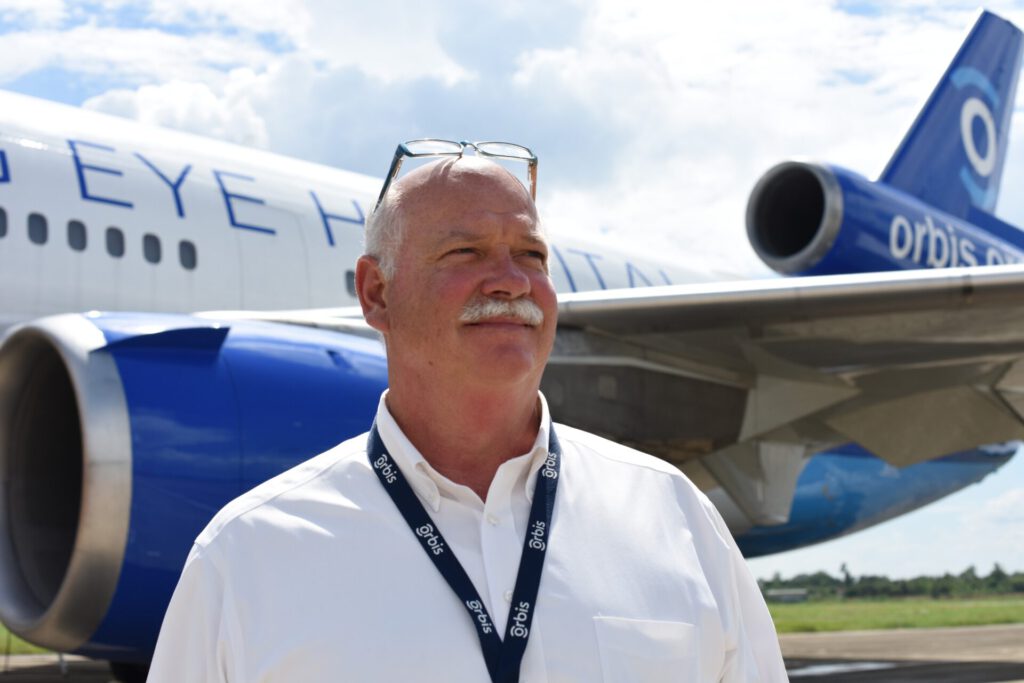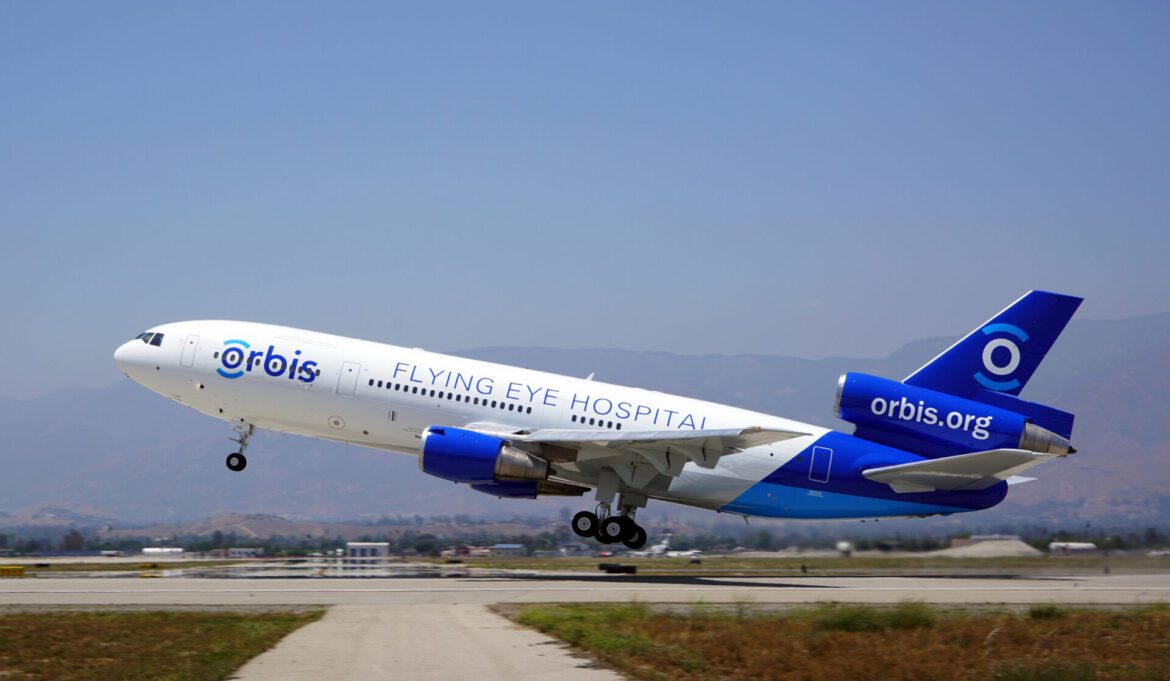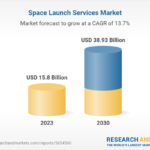Avoidable blindness and vision loss affect about 1.1 billion people globally, but a staggering 90% of these cases are completely avoidable, meaning they could be treated or prevented with the right care.
Orbis International, a global eye care nonprofit, fights avoidable blindness by training eye care professionals in areas with the greatest need so they can save sight in their communities.
The Flying Eye Hospital, a fully accredited teaching hospital on a plane that took its first flight 40 years ago, is one of the ways trainings are provided. It recently celebrated a return to in-person programming after setbacks caused by the COVID pandemic.
Source: Orbis International
Photo credit: Featured: Orbis Flying Eye Hospital – First official take-off of the newly completed and painted MD-10 Flying Eye Hospital in San Bernadino, California, June 2016. Credit: Richard Jorgenson/Orbis; Below: Bruce Johnson, Director of Aircraft Operations and Maintenance, Orbis International

Learn How the Flying Eye Hospital Helps Combating Avoidable Blindness and Vision Loss
Avoidable blindness and vision loss affect about 1.1 billion people globally, but a staggering 90% of these cases are completely avoidable, meaning they could be treated or prevented with the right care.
Orbis International, a global eye care nonprofit, fights avoidable blindness by training eye care professionals in areas with the greatest need so they can save sight in their communities.
The Flying Eye Hospital, a fully accredited teaching hospital on a plane that took its first flight 40 years ago, is one of the ways trainings are provided. It recently celebrated a return to in-person programming after setbacks caused by the pandemic.
While in-person trainings were paused, Orbis reached dozens of countries through virtual Flying Eye Hospital trainings and began training more people than ever before through its telemedicine and e-learning platform, Cybersight. Now, reintroducing in-person training programs, there is an opportunity to make a greater impact than ever—and ensure patients continue to receive safe, world-class care, no matter where they live.
As we're heading towards the giving season, the gift of sight is among the most impactful, with ripple effects that can be felt not just by individuals, but their families and communities. Every $1 invested in eye health in low- and middle-income countries is estimated to yield $4 in economic gain.
Watch an Orbis official explain here, and visit the Orbis website for further information and options to donate to their wonderful cause.
For corrections or follow-up: editor@spaceinfohub
You may like these posts too:
- Skin-like electronics could monitor your health continuously
- Past and Present of Maritime Silk Road is Key to China-Indonesia ties and International Trade
- Most U.S. Women Agree with Abortion Access, But No One’s Talking About That: Rebel Report
- How to Cure Your Fear of Flying – Six Tips for Stress Free Travel
- Eviation Gets Order From Aerus for 30 Alice All-Electric Commuter Aircraft
- CURE International and Smile Train to Offer Comprehensive Cleft Care and More Surgical Capacity for Children













